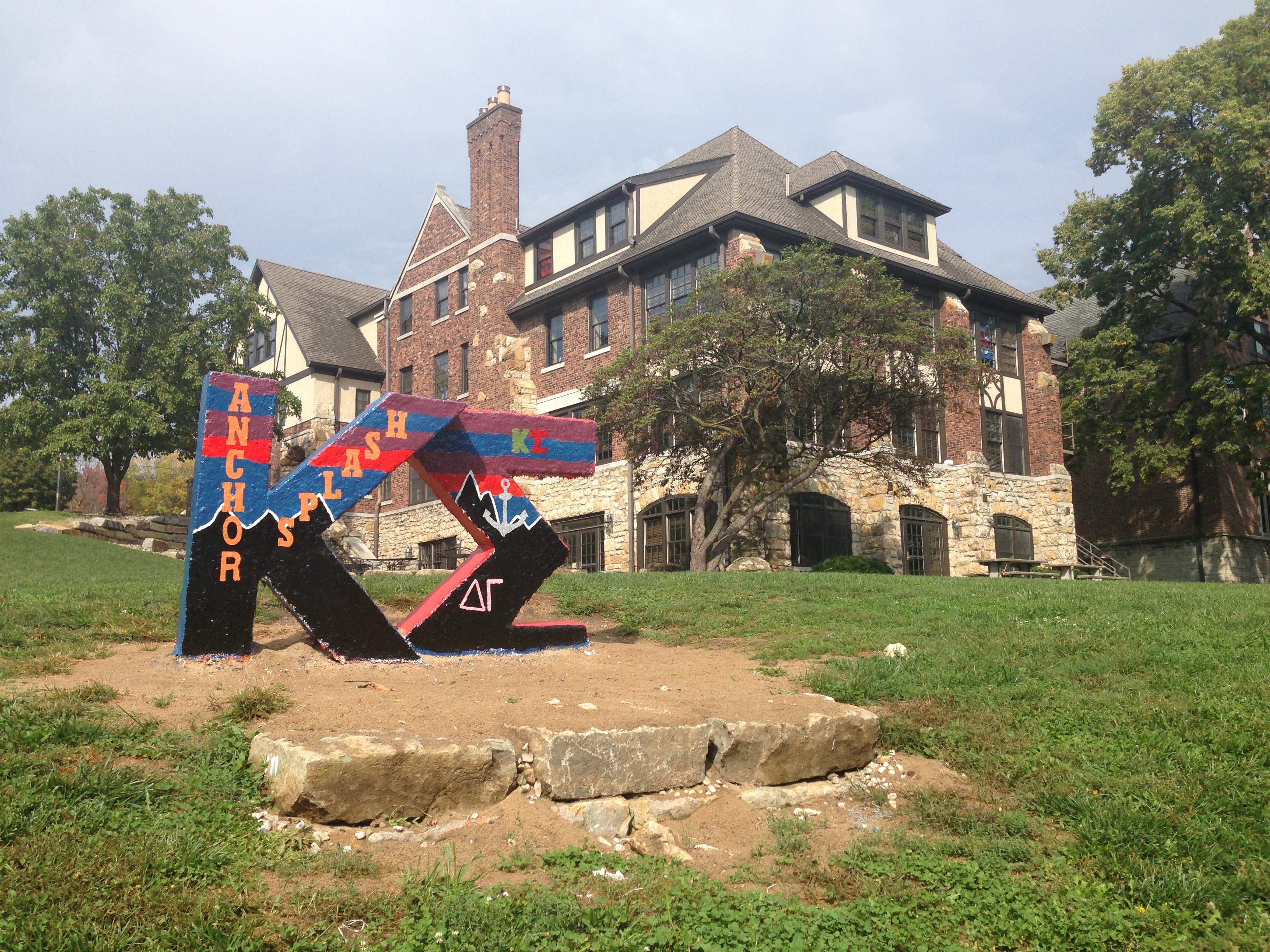Some greek organizations have had success with curbs on alcohol
When the Interfraternity Council at Purdue University in Indiana voted to ban all hard liquor from fraternity properties and chapter events this year, Purdue IFC President Matt Gebbie said the reaction from fraternity members was mixed.

Kappa Sigma fraternity at 1045 Emery Road on Wednesday, Oct. 1, 2014.
“At first we saw some push back and some unhappy members,” Gebbie said.
But after the policy was implemented in March and members “saw the positive effects of the change and the reasons behind it,” Gebbie said the university’s Greek community “began to take it more positively.”
Kansas University’s IFC followed Purdue’s lead this month, banning hard liquor from fraternity houses beginning this fall. Some say implementing hard-liquor bans will be effective. Others say liquor-specific prohibitions don’t go far enough.
Addressing “critical issues”
Purdue IFC’s ban followed an alleged rape at the Acacia fraternity involving an underage fraternity member who said he and the victim had been drinking that night at a fraternity party, according to the Lafayette Journal and Courier. KU’s ban came at the end of a school year during which the Kappa Sigma fraternity chapter was placed on a two-year probation following reports of sexual assault at the house over homecoming weekend in September.
Since passing the ban on hard liquor, Gebbie said, the Purdue council has seen a “huge decrease” in the number of alcohol violations and “incidents.”
“This was important for Purdue IFC because as a council, one of our main priorities is the safety of our members,” Gebbie said. “We felt that this was a big step toward making our community safer.”
A statement from KU’s IFC said the hard-liquor ban addresses “three critical issues — alcohol abuse, cultural competence and sexual violence — in light of incidents involving Greek life at both a national and local level.”
Gebbie said he thinks that time will prove hard-liquor bans at fraternities are successful, and more colleges across the country will take similar actions.
Policy change “a start”
KU’s Watkins Health Services health educator Jenny McKee said while the hard-liquor ban “is a start,” other alcohol can be dangerous, too.
“There is a possibility that individuals may not consume as much alcohol as they would have been able to do previously given the ‘filling’ effect beer can have,” McKee said. “However, an individual can also experience alcohol poisoning from drinking beer or wine exclusively.”
McKee said that while the KU ban “promotes abstinence of hard liquor,” an educational element regarding responsible ways to consume hard alcohol would be beneficial because “hard liquor will continue to exist outside the confines of the college campus.”
“Perhaps banning the use of hard liquor for spiked punches or simply taking shots in general may be more educational than an overarching ban,” McKee said. “One that would incite a culture shift that says, ‘When we drink hard liquor, we do it responsibly by measuring our shots and knowing what is in our drink instead of taking pulls out of a handle or getting a cup full of a mystery beverage.'”
McKee, who works to educate students on responsible drinking, said that the real danger is with alcohol ignorance and people not knowing how many standard drinks — regardless of the type — they are consuming.
“Frequently, the drinks we are served, although they come in a singular vessel, are more than one standard drink,” McKee said. “Depending on whether the shot was actually measured, there could be one, two, or more drinks in that one glass. Novice drinkers are less likely to have this knowledge because lack of drinking experience.”
Fraternities “not just a social outlet”
Two KU IFC fraternities, Sigma Alpha Epsilon and Phi Delta Theta, already prohibit all alcohol, including beer, on their properties. SAE banned alcohol in 2013 following the March 2009 alcohol-poisoning death of a freshman member at the house. Phi Delta Theta banned alcohol following the national fraternity’s 2000 decision to prohibit alcohol at all of its chapter houses.
Phi Delta Theta’s national fraternity associate executive vice president, Sean Wagner, said that since the organization’s alcohol prohibition, grade point average and membership rates have grown substantially. In 2000, the average Phi Delta Theta member’s GPA was 2.7, there were 175 chapters and about 8,500 collegiate members. In 2015, the average GPA is 3.1, there are 190 chapters and about 12,000 collegiate members.
“I think more people are attracted to it,” Wagner said. “(Chapter houses) are cleaner, safer and more conducive to academics, as shown in our GPA.”
Wagner said the alcohol ban dramatically reduced alcohol-related problems at the fraternity, as evidenced by the fraternity’s liability insurance rate decrease in the 15 years since implementation.
“Liability insurance cost per member in 2000 was $160; today it’s $80,” Wagner said. “Insurance rates are reflective of the number of complaints.”
Since the ban, Phi Delta Theta’s liability claims have dropped more than 60 percent, Wagner said. Notably, there are no current lawsuits against Phi Delta Theta.
“Alcohol is a risk on any college campus,” Wagner said. “We wanted to be better than that. We are not just a social outlet, but a leadership organization.”

